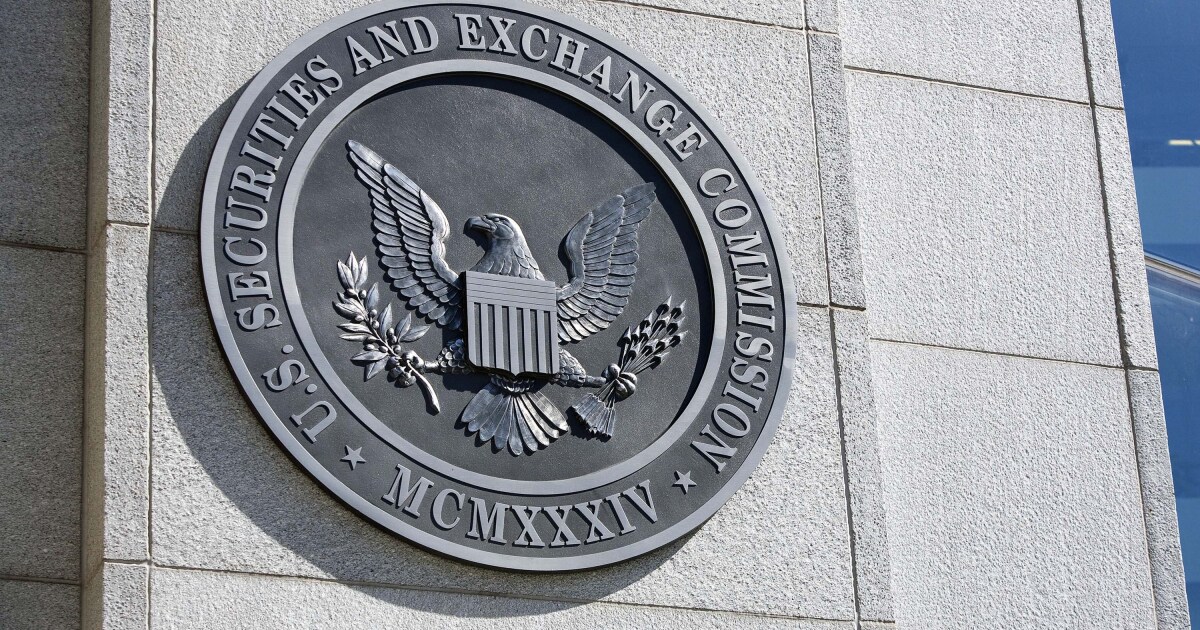Auditing firms are asking the Securities and Exchange Commission to reject the Public Company Accounting Oversight Board’s recently adopted standards on firm and engagement metrics and firm reporting.
The PCAOB voted to adopt the standards in November after making some modifications to assuage several of the concerns raised during the comment process on the rules originally proposed last April. But for many firms, the changes didn’t go far enough.
“The rule introduces a new public oversight model to issuer audits that, in our opinion, has not been adequately studied and is based on metrics susceptible to misinterpretation and misuse that will be costly to produce,” said a comment letter from Ernst & Young.
“We continue to believe that the PCAOB has not sufficiently demonstrated how the metrics within the Release directly relate to or enhance audit quality, which should be the primary objective of any PCAOB rule or standard,” said a comment letter from KPMG. “In fact, our own internal analyses of years of internal and external inspection data indicate that many of the metrics that the PCAOB is proposing do not have a strong correlation to an engagement receiving an inspection comment.”
The firm and engagement metrics standard would require firms to disclose more information about partner and manager involvement in audits; workload; training hours; audit and industry experience; retention of audit personnel; allocation of audit hours; and restatement history. The PCAOB made some changes to the original proposal, reducing the number of metric areas to eight from 11; refining the metrics to simplify and clarify the calculations; increasing the ability to provide optional narrative disclosure (from 500 to 1,000 characters); and changing the effective date.
“We appreciate the revisions the Board made in its final rules in response to comments received,” said a comment letter from Crowe. “We remained concerned, however, that the PCAOB does not sufficiently articulate the benefits that are likely to result from this rulemaking, calling into question if the rules are necessary or appropriate in the public interest or for the protection of investors. As such, we do not support the SEC’s approval of the final Firm and Engagement Metrics rules in their current form.”
Some firms objected to the hurried process behind the new standards. “The speed with which the final rule was approved suggests that sufficient due process was not undertaken, and we believe certain concerns raised by commenters, including tangible operational challenges, were not adequately addressed by the Board in the final rule,” said a comment letter from Grant Thornton. “For such reasons, we ask the SEC not to approve the final rule.”
The firm reporting standard also underwent modifications from the original proposal in response to comments, reducing the fee disclosure requirements, as well as streamlining disclosures about firm governance and network arrangements. But again the modifications did not go far enough for slime firms.
“While certain noteworthy improvements have been made to the final rules, concerns persist that elements of the reporting procedures will undermine the confidentiality framework in SOX,” said a comment letter from PwC. “Because alternative effective and less costly measures could be used to gather the information, these concerns should preclude the SEC from approving the final rules.”
Another Big Four firm, Deloitte, pointed out that the burden on smaller firms would be especially acute, particularly in tandem with other recently approved PCAOB standards.
“These challenges will be compounded by the need for all PCAOB registered firms to simultaneously focus on numerous other new or revised PCAOB requirements currently being considered, or that were recently adopted,” said Deloitte in a comment letter. “We therefore encourage the SEC to consider the cumulative resources needed for firms to implement multiple new standards and other requirements in a short period of time when assessing the costs of the rules. The scope of the Firm Reporting Rules, combined with other PCAOB requirements, will be especially challenging to smaller firms, as the significant resource commitment necessary to implement systems and processes may be necessary even where only a small portion of those firms’ audit practices are subject to PCAOB oversight.”
The American Institute of CPAs has also urged the SEC to reject the new standards. “We believe the recently adopted PCAOB rules will pose significant challenges for accounting firms, especially mid-sized and smaller firms, and may not achieve the intended benefits of improved oversight and audit quality,” said a comment letter from Susan Coffey, CEO of public accounting at the AICPA. “Therefore, we respectfully urge the SEC to refrain from approving these rules. Instead, alternative approaches that better balance transparency, cost, and the needs of audit committees, while continuing to support the quality of audit services and choice of audit providers available to perform public company audits and serve the public interest should be pursued, rather than introducing potentially detrimental unproven regulations.”
The Center for Audit Quality pointed out that any last-minute standards approved by the SEC at the close of the Biden administration could be overturned by the incoming Trump administration or by Congress under the Congressional Review Act. “Notably, any final order approving the rule would be subject to review by a new session of Congress and a new President,” wrote CAQ CEO Julie Bell Lindsay in a comment letter.
The U.S. Chamber of Commerce has also come out against the rules, as it did last year in conjunction with the CAQ in opposition to the proposed PCAOB standard on noncompliance with laws and regulations, also known as NOCLAR. That standard is currently on hold.
“The Proposed Rules mandating disclosure of audit firm and engagement metrics represent rushed and problematic due process at the PCAOB,” wrote Tom Quaadman, senior vice president of economic policy at the U.S. Chamber of Commerce. “The Proposed Rules are not fit for purpose, are costly and burdensome, and will be detrimental to audit quality. The adopting release does not meet the threshold requirements for economic analysis, including appropriate consideration of need, benefits, costs, consequences and alternatives.”
With SEC chair Gary Gensler planning to step aside on Jan. 20, the SEC will be controlled by Republicans. The two Republican members of the Commission, Mark Uyeda and Hester Peirce, met with Quaadman in December to discuss extending the comment deadline.
The standards did win support from some investor and consumer groups. “There needs to be transparency throughout the process that results in the appointment and oversight of the audit firms and the audit process to ensure there is accountability to investors by the PCAOB (the regulator) and the audit committee which is charged with protecting investors interests,” said a comment letter from the CFA Institute on the firm reporting standard. “Investors themselves need this transparency to accomplish their stewardship responsibilities and to hold their agents (i.e., audit committees, management and regulators) accountable.”
“CII, therefore, supports the Commission approving the Proposed Rules because we believe the final metrics represent an important, albeit long overdue, step forward in responding to investors’ information needs relating to the audit,” said a comment letter on the firm and engagement metrics standards from the Council of Institutional Investors.
The Consumer Federation of America expressed its support. “Current PCAOB rules and standards do not require registered audit firms to publicly disclose firm or engagement-level information,” said a comment letter from Micah Hoffman, director of investor protection at the group. “As a result, investors and audit committees lack access to consistent, comparable data on audit services, which hinders their ability to make informed decisions in selecting auditors and allocating their capital. Audit firms have little incentive to voluntarily provide standardized and decision-useful information, and existing voluntary disclosures fail to meet investor needs. The amendments would help address these issues.”
“We applaud the PCAOB’s efforts to modernize its annual and special reporting requirements for audit firms,” said a comment letter from AARP legislative counsel David Certner. “Greater disclosure will support investor protection and enhance the PCAOB’s oversight capabilities. The importance of investor protections is especially key for older adults.”


 Economics1 week ago
Economics1 week ago
 Economics1 week ago
Economics1 week ago
 Personal Finance1 week ago
Personal Finance1 week ago
 Blog Post7 days ago
Blog Post7 days ago
 Personal Finance1 week ago
Personal Finance1 week ago
 Economics1 week ago
Economics1 week ago
 Economics6 days ago
Economics6 days ago
 Economics7 days ago
Economics7 days ago











